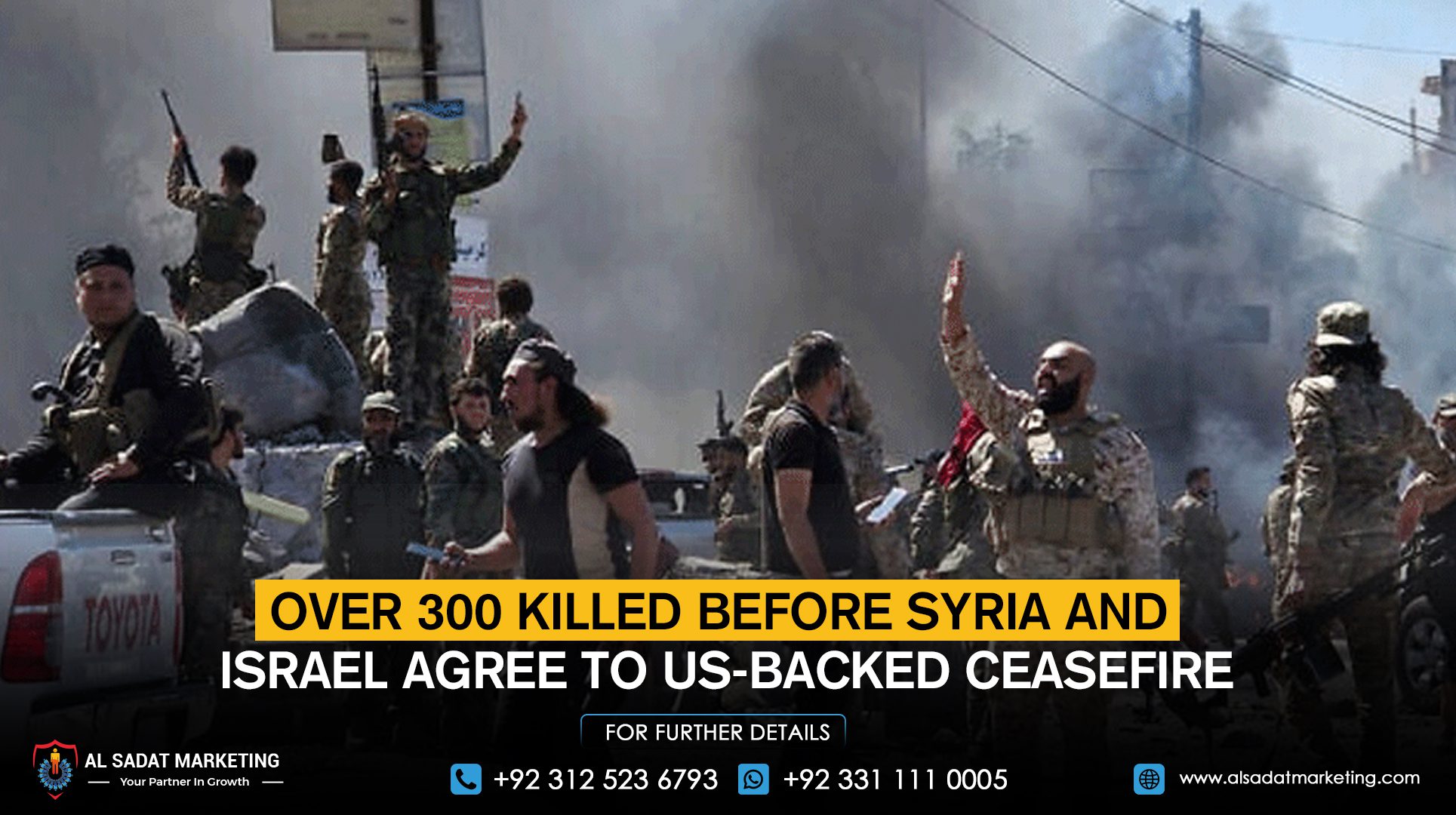After days of fierce fighting in Syria’s southwestern Suwayda province, where skirmishes between Bedouin fighters, Druze factions, and government forces have left over 300 people dead and hundreds injured, Syria and Israel have agreed to a ceasefire mediated by the United States.
Washington has “supported” the ceasefire, while Turkiye, Jordan, and Syria’s neighbors have “embraced” it, according to a post made early Saturday by U.S. Ambassador to Turkiye Tom Barrack on the social media site X. With Israeli bombings on Syrian targets and a worsening humanitarian crisis in the conflict-affected area, the ceasefire represents a brief respite from the rising carnage.
Sectarian conflicts in Suwayda, an area primarily populated by Syria’s Druze minority, set off the bloodshed. Israeli soldiers said they were protecting the Druze community when they conducted attacks on government buildings in Suwayda and the Ministry of Defense in Damascus on Wednesday, which sparked a wider conflict.
Speaking Thursday from Damascus, Syria’s acting president, Ahmed al-Sharaa, promised to protect the country’s Druze people and accused Israel of trying to destabilize Syria. In a broadcast speech, he cautioned against attempts to splinter national unity, saying, “While Syria seeks peace, we are not afraid of war.”
With the help of the U.S., Turkiye, and Arab allies, Druze leaders and the Syrian government came to a ceasefire accord on Wednesday.
Israel apparently carried out additional airstrikes later that day, killing at least three individuals and wounded 34 more, in defiance of the ceasefire agreement.
Speaking following the agreement, Israeli Prime Minister Benjamin Netanyahu reaffirmed Israel’s commitment to protecting the Druze, a small but significant community with roughly 150,000 members in Israel and one million in Syria. As calls to act in Suwayda from Israel’s own Druze population grew, Netanyahu declared, “They are our brothers.”
Speaking on condition of anonymity, an Israeli official revealed Friday that Israel has consented to permit Syrian internal security forces to enter the Suwayda district on a restricted basis for a 48-hour period.
Although Israel is still leery of Syria’s new leadership, which it has characterized as “barely disguised jihadists,” the official said the action was intended to defuse the situation.
On the ground, the situation is still unstable. Locals and media source Suwayda24 reported that fighting persisted in Friday’s northern and western regions of Suwayda. There were concerns that the bloodshed might continue even after the ceasefire because thousands of Bedouin fighters were apparently still entering the province.
Mudar, a 28-year-old local who spoke to Reuters under the condition of anonymity because of security concerns, said, “We haven’t had any electricity, food, or water, nothing at all for four days.” “The conflicts are still going on. There is hardly any phone or internet coverage, making communication difficult as well.
According to the Syrian Network for Human Rights, 321 people have died since the fighting began, including women, children, and medical personnel. Incidents of field executions by all sides were reported by the group. Six individuals were summarily executed in separate events that same day, while at least 13 civilians were reportedly killed when gunmen opened fire on a family gathering on Tuesday.
According to Syria’s emergency ministry, hundreds of families had been evacuated from Suwayda, and over 500 individuals had received medical attention for their injuries. In the neighboring province of Daraa, a convoy of interior ministry personnel was observed awaiting final authorization to enter the battle area.
In Suwayda, where relief delivery have been impeded by the worsening security situation, the UN has demanded immediate humanitarian access. In light of reliable reports of widespread abuses, such as arbitrary executions and kidnappings, the Office of the High Commissioner for Human Rights (OHCHR) encouraged Syria’s interim authorities to ensure accountability.
The United States has been instrumental in bringing about the ceasefire, although it has dissociated itself from Israel’s recent military operations. Washington had not backed the Israeli strikes on Syrian territory, according to a White House statement released Thursday, underscoring the two allies’ different approaches.
“We call upon Druze, Bedouins, and Sunnis to put down their weapons and, together with other minorities, build a new and united Syrian identity — in peace and prosperity with its neighbors,” Ambassador Barrack wrote on X, urging all sides to work toward reconciliation.
Despite the ceasefire, experts caution that Suwayda’s long-term stability is unlikely due to the region’s long-standing sectarian conflicts and geopolitical rivalries. Long overlooked by the national government, the area is now at the center of a larger conflict for Syria’s future allegiances and identity.










